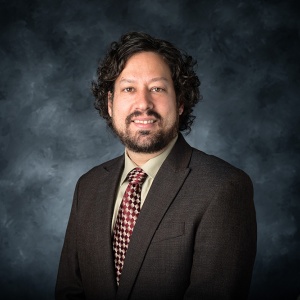
Growing up in a politically divided household—his father a Republican and his mother a Democrat—David Frisvold was witness to some dynamic family dinners.
It was an experience that taught him to consider all sides of an argument and assume nothing: two skills that made him into a top-notch economics researcher and teacher at the University of Iowa Tippie College of Business.
Through his research, Frisvold has tackled a number of public policy issues to see what data can tell us.
Does taxing soft drinks actually reduce obesity?
Does going to college contribute to a lifetime of better health?
Does the free school breakfast program improve children’s test scores?
“Economists don’t think about these issues from a political perspective. We think about how these types of incentives or policy changes influence people’s behavior and then we objectively analyze what occurs. From that knowledge, we can infer what might happen, say, if a soda tax was passed in Des Moines,” says Frisvold, associate professor and Henry B. Tippie Research Fellow.
Enthusiasm for his own line of research spills over into his classroom. Frisvold says teaching makes him a better researcher and researching makes him a better teacher.
“Oftentimes things come up in preparing for my classes that spark research ideas,” he says. “And my students benefit in terms of learning more, further developing their analytic skills, and having an understanding of how ideas they are learning in the classroom relate to real-world events and public policy.”
For most of his classes, Frisvold doesn’t require a textbook. Instead, he assigns readings from the most recent economics research articles and has a recommended textbook available at the college's Pomerantz Business Library for checkout.
“In my health economics class, we read journal articles that illustrate how researchers determine whether or not an increase in tax on cigarettes reduces smoking, and how expansions of public health insurance influence medical care usage and health outcomes,” he says. “This gives students insight into the statistical issues researchers face. My hope is that they can then more critically read news articles, opinion pieces, briefs on these topics, and understand the information they are receiving.”
Frisvold’s research activities also have another big payoff for students: this year he has employed eight students as research assistants. These research-grant-funded positions have allowed students to gain valuable experience while also providing them with financial resources.
Frisvold’s research data is open and available, which allows others to determine whether he has interpreted the data correctly and avoided unconscious bias. Asked if he’s ever been accused of cooking the numbers or “lying with statistics,” Frisvold jokes:
“The number of times that people from both sides of the political equation think I’m wrong demonstrates that’s not true.”
At the very least, it makes for lively dinner conversations when he goes home to visit Mom and Dad.
